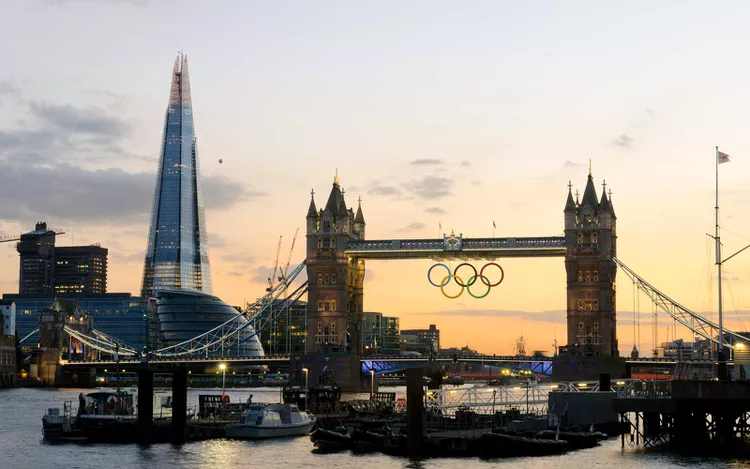Experiencing the Tokyo 2020 Olympics: Culture, Logistics, and Insights
To fully understand the culture of the Olympics, you have to experience it firsthand. My crash-course in Olympic life was during the London 2012 Olympics, where I admittedly made some rookie mistakes. However, to reacquaint myself with Olympic culture ahead of Tokyo 2020, I recently toured the Kanto region of Japan, which will host 31 out of 33 Olympic sports this summer.
The Significance of the Olympics
The Olympics function as a global time stamp, reflecting the world’s turbulence and documenting cultural and technological phenomena. The 2012 Olympics predated many modern conveniences, such as social media platforms that shape our current communication. London 2012 was pivotal, three Olympic games before Russian athletes competed under a neutral flag. The Tokyo 2020 games will display an entirely new side to history, diverging from prior events in Rio 2016 and London 2012. Here’s what I wish I’d known before heading to the Olympics.
The Logistics of Olympic Travel
Unsurprisingly, the most important takeaways from traveling to an Olympic destination revolve around logistics. First and foremost: There will be events outside the host city. The main city rarely accommodates every event due to space constraints. During my time in Japan, I explored the surrounding prefectures and discovered their contributions to the games and the opportunities they offer travelers flocking to Tokyo. Prefectures such as Shizuoka, Yamanashi, and Kanagawa are preparing to welcome Olympic tourists.
:max_bytes(150000):strip_icc():format(webp)/tokyo-olympics-locations-lake-yamanaka-GOOLYMPIC0120-0854116b3e9a4cf3b97de2c390805896.jpg)
The support of the entire country during the Olympics provides a unique opportunity to use the main city as a jumping-off point. Reasons for hosting the Olympics include infrastructure boosts, prestige, and increased tourism. Sapporo will host both soccer and the Olympic marathon, serving as a gateway for a northern Japanese adventure. In Yamanashi Prefecture, the cycling race will showcase breathtaking views of Mount Fuji and culminate at Fuji Speedway.
Another crucial aspect of logistics is accommodations. Olympic events typically occur on the outskirts of the city, where space is available for stadiums and facilities. Deciding where to stay can influence your experience significantly. Being close to the venues offers quick access to events, while staying in the heart of the city allows for optimal sightseeing. The two primary zones for the Tokyo Olympics are the Tokyo Bay Zone and the Heritage Zone, both in high demand for accommodations.
:max_bytes(150000):strip_icc():format(webp)/olympic-trading-pins-GOOLYMPIC0120-36e223ccb38f4a8abb0b2d2392da816c.jpg)
The Cultural Experience
The Olympics encompass more than just sports; they embody deep-seated traditions. One such tradition is pin trading, which has become an event in its own right. Participants wear their pin collections as badges of honor and often engage in trading with others. As a first-timer, it’s an excellent opportunity to join in and gain some unique Olympic memorabilia.
Understanding the Team Houses
Team houses also represent a significant part of Olympic culture. For example, Team USA’s house will be located not far from Team Italy’s in Tokyo. While the inner workings of team houses are typically inaccessible to the public, gathering information through word-of-mouth and social media can reveal which houses are open for visits, potentially leading to athlete encounters and cultural exchanges.
When attending events, follow the home team. Expect to see the host country’s team featured prominently, enhancing your overall experience. Familiarizing yourself with Team Japan’s presence in key events will deepen your engagement with the Olympic spirit and enrich your visit.
:max_bytes(150000):strip_icc():format(webp)/tokyo-olympic-museum-stature-GOOLYMPIC0120-6b23d38cabac42ffa62e4ff44c02fd2d.jpg)
The Historical Impact of the Olympics
Experiencing the Olympics firsthand highlights the games’ global impact and historical significance. On my last day in Tokyo, I visited the Japan Olympic Museum, which opened in September 2019. The museum chronicles Olympic history and showcases flags from every country that has participated.
The Olympics are significant not only for the sports involved but also for their ability to unify nations. This aspect becomes even more tangible when you immerse yourself in the Olympic host city during the games. For future Olympic travelers, understanding the cultural context and the significance of your host country, such as learning about prominent Japanese athletes like Naomi Osaka, will enhance your experience. Remember to set aside time to explore Japan beyond the Olympics—there’s a whole country waiting to be discovered.




